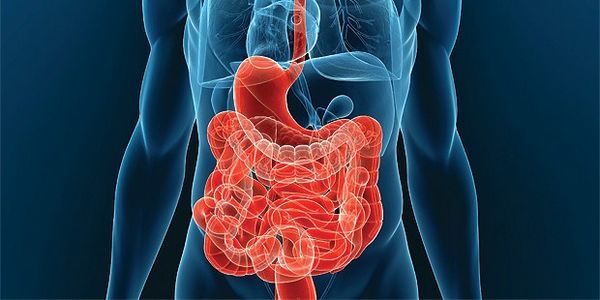An ulcer of the esophagus – treatment of disease. Symptoms and prevention of the disease Ulcer of oesophagus

An ulcer of the esophagus – What is this disease? Ulcers of the esophagus-esophageal mucosa defect, arising, usually, under the influence of gastric juice. Such sores are commonly referred to as peptic.
Ulcers, that is not associated with railings and gastric juice, are called symptomatic. They occur against the backdrop of various diseases or when taking certain medications.
An ulcer of the esophagus – The cause of the
Causes of the development of esophageal ulcers may be true:
- · грыжа пищеводного отверстия;
- · гастроэзофагеальная рефлюксная болезнь;
- · недостаточность кардии;
- Peptic ulcer of the stomach and duodenum;
- · вредные привычки;
- · системные заболевания соединительной ткани.
Causes of development of symptomatic ulcers of the esophagus may be:
- · новообразования, exerting pressure on the esophagus;
- · дивертикулы пищевода;
- · прием некоторых лекарственных препаратов;
- · лучевая терапия (irradiation of thorax organs);
- · механические или термические ожоги;
- · тяжелые заболевания внутренних органов на терминальной стадии.
An ulcer of the esophagus – Symptoms
The main symptoms of ulcer of oesophagus are:
- · Изжога, the intensity which increases substantially in the lying position, tilting forward, and after active physical exertion.
- · Ощущение тяжести и боль за грудиной. Often this symptom occurs after the ingestion of hot, cold or sour foods. The pain can give to the left side of chest, can simulate a heart attack. After taking antacid medications pain can subside.
- · Нарушение глотания (dysphagia).
- · Одиногафия (pain when swallowing).
- · Отрыжка, nausea and vomiting (sometimes with impurities of the blood).
An ulcer of the esophagus – Diagnostics
In the first phase collects medical diseases and analysis of the complaints of the patient. Analyses of family history data and analysis objective examination.
Laboratory research methods:
- physical examination;
- physical examination;
- coprogram.
Instrumental research methods
- · Esophagogastroduodenoscopy;
- · исследование материала желудка;
- · тест на наличие хеликобактера;
- · измерение кислотности среды в пищеводе;
- X-ray examination using barium suspension;
- · ultrasound examination;
- severe conditions;
- magnetic resonance imaging;
- · other research methods.
An ulcer of the esophagus – Types of disease
Ulcers of the esophagus may be symptomatic and true (peptic). In turn, symptomatic ulcers of the esophagus are:
- · congestive – occur when the esophagus is compressed by tumors;
- · medicinal – occur when taking certain medications, and after irradiation in the treatment of malignant neoplasms;
- Decubital - develop when the tube is constantly in the esophagus;
- · stressful – formed in severe conditions, strong injuries, advanced stages of heart disease, liver, vessels, Kidney and other diseases.
An ulcer of the esophagus – Actions of the patient
When unpleasant symptoms should consult a physician-gastroenterologist.
An ulcer of the esophagus – Treatment
Non-pharmacological treatment of ulcers of the esophagus includes:
- Diet, appointed doctor;
- · rejection of bad habits;
- normalization of body weight (If overweight);
- Refusal to wear tight clothing, narrow clothing;
- · sleep in a position with the head end of the bed raised;
- avoiding heavy physical activity and work, associated with the slopes forward.
Medication:
- · taking antacids;
- · astringents;
- proton pump inhibitors;
- preparations, contributing to the healing of gastric mucosa;
- · taking prokinetics - drugs to restore normal motility of the gastrointestinal tract.
The ineffectiveness of the conservative treatment of the patient is assigned to surgical treatment.
An ulcer of the esophagus – Complications
In most cases, appropriate treatment and compliance with nutritional advice for zazhivljaetsja ulcer 2-4 weeks. Prognosis in this disease generally favorable.
If there is no adequate treatment may develop the following complications:
- perforation of ulcer;
- penetration – spread of the ulcer beyond the esophagus;
- · strictures;
- malignancy of the ulcer with the development of a tumor;
- development of bleeding;
- rapid weight loss to the point of exhaustion.
An ulcer of the esophagus – Prevention
To prevent the development of esophageal ulcers must adhere to the following guidelines:
- Regularly visit a gastroenterologist;
- · follow the principles of healthy eating;
- avoid stress;
- · eliminate bad habits;
- · treat diseases in a timely manner, that can lead to the development of ulcers of the esophagus.
